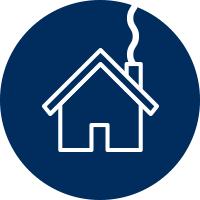Tips on Treating and Avoiding Heat Exhaustion
- Reliable Controls Corporation
- Jul 4, 2017
- 1 min read

We have been experiencing record temperature highs all over the country, making heat exhaustion even more of a potential hazard. It's important to be able to recognize the symptoms of heat exhaustion, as well as know how to prevent yourself from getting to that level.
Heat exhaustion is usually a result of dehydration, or losing too much fluid, sodium and other minerals. The risk of heat exhaustion increases when the relative Humidity is 60% or higher or the heat index is over 90 degrees. Also, living in an Urban area with
atmospheric conditions or poor air quality can make you more at risk for heat exhaustion.
Health conditions such as heart, lung or kidney disease, diabetes, as well as medications like diuretics, sedatives, tranquilizers and stimulants will also make you more sensitive to becoming overheated.
Symptoms of Heat Exhaustion include:
Confusion
Dizziness
Fainting
Fatigue
Headache
Muscle/Abdominal Cramps
Nausea/Vomiting/Diarrhea
Pale Skin
Profuse Sweating
Rapid Heartbeat
Treatment for Heat Exhaustion:
GET OUT of the heat
Get to air-conditioned room
Drink plenty of fluids *avoid caffeine or alcohol
Remove tight or unnecessary clothing
Take a cool shower or bath
Prevention for heat exhaustion:
Wear Lightweight Clothing that allows evaporation for perspiration off the skin
Wear Loose-fitting Clothing
Use Sunscreen (SPF30+)
Drink Extra Fluids, include sports drinks or lightly salted water to maintain healthy sodium and electrolyte levels
Prior to moderate to intense exercise, drink 17-20 ounces of fluid
During exercise, consume another 7-10 ounces every 20 minutes
For more information on heat exhaustion, especially in the mining industry, visit the a Safety and Health section of MSHA.gov.





Comments